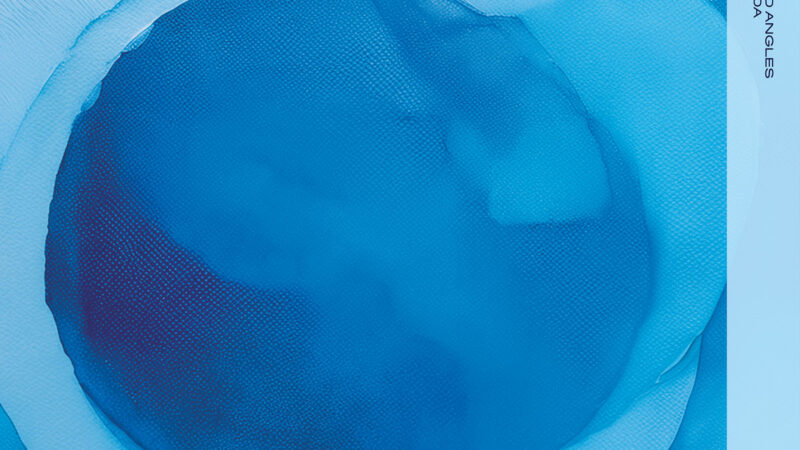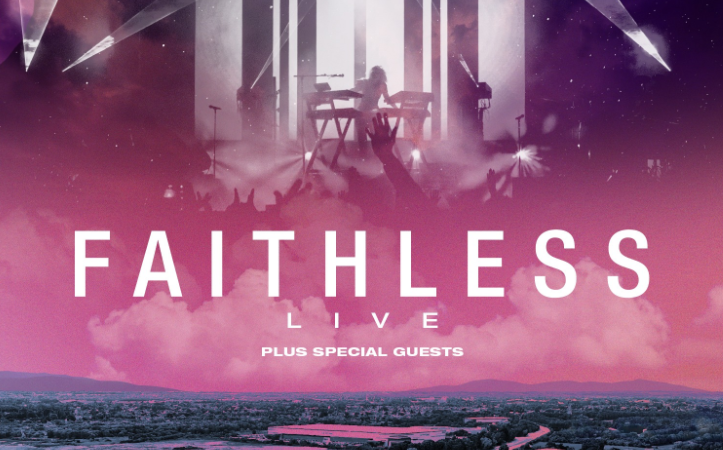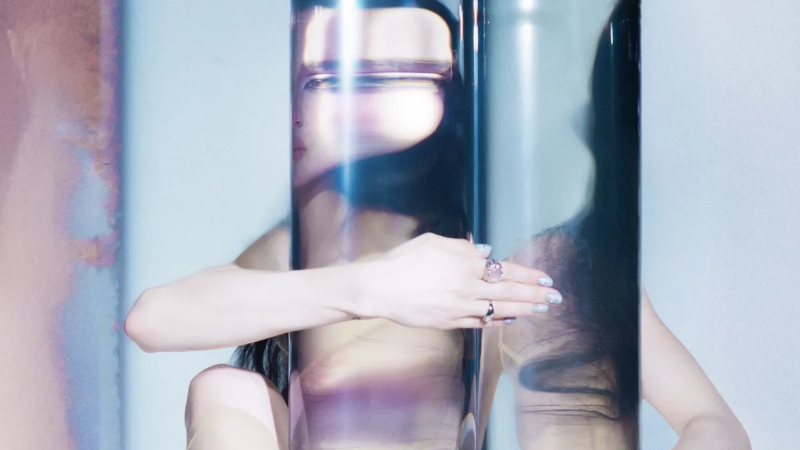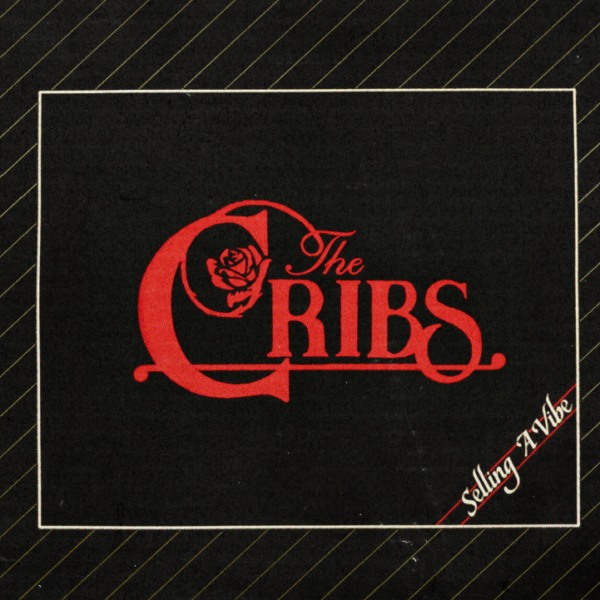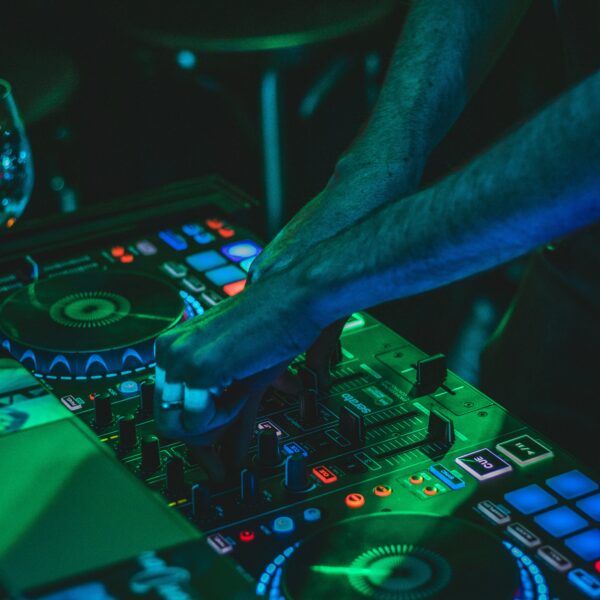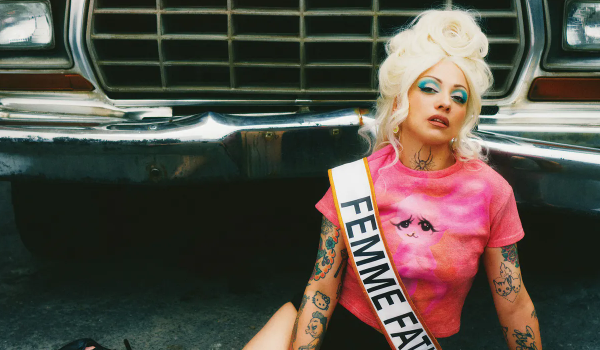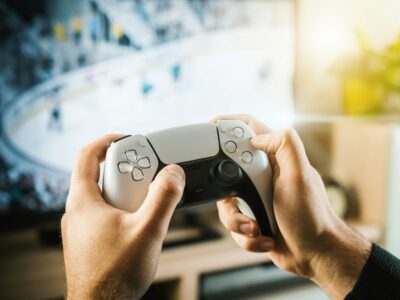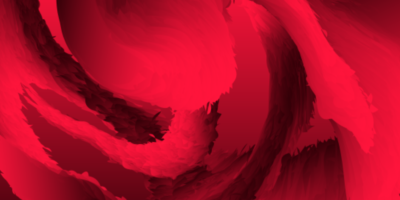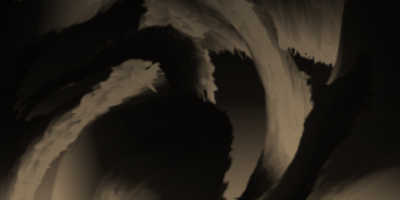It’s a hard life being a music journalist… are not the words running through my mind as I sip cocktails atop a roof terrace with Alexander Shields, watching the sun set over central London. So often branded ‘elusive’ and ‘mysterious’, the man behind the brooding press shots and melancholic moniker isn’t at all how I’d expected him to be in person. With an infectious energy and enviable aptitude for storytelling, he lets me into his world with captivating yarns about running the rap section at HMV and cutting all his hair off in a hungover studio daze. Of course, Alex is no less animated when we get round to discussing the music. The final instalment in his album trilogy under A Grave With No Name, Whirlpool has been his biggest project to date. Already scoring rave reviews from the independent and mainstream media alike, it’s certainly something to get excited about.
Prime Planet: How did you first get started?
Alexander Shields: I got some money for a birthday, it was meant to be for a car or something, but I bought a sampler and some drum machines, and already had an old guitar that I couldn’t really use, so I just started messing around with it. The first thing I thought was ‘this is relatively okay’, so I uploaded it to Myspace, just to stop me messing around, and it was there for ages just sitting around; noone really knew I made music. I played it to a friend who worked with people in music, then he played it to some of the guys at No Pain In Pop, and a few days later I got a message saying ‘we really like this, will you play a show for us’. It was the last thing on my mind, because I had like four songs, but I was like ‘yeah I’ll do it, of course’. Having played that one, I got offered another gig with Atlas Sound, who I love. From that, someone approached us to put out an EP, which we did, and a few weeks later No Pain in Pop was like ‘can we put out an album?’. I already had enough bits and pieces laying on my hard drive to stitch together into a record, and that just got picked up more than I ever thought it would’ve. So that was it really, it was never really a plan to do anything. The only plan was to only do good things. I think if you’re relatively okay and you only do good things then people are going to pay more attention to you than if you’re not okay and doing crap things. It just makes sense.
PP: Is having such a misrepresentative stage name ever a hindrance?
AS: As much as it was a really glib decision in some ways, because I wanted to take the piss out of my friend who really liked As I Lay Dying and made me go to all these rubbish emo concerts, I do actually think about everything I do to a ridiculous extent. When you pick a really misrepresentative name, it allows you to do what you like. Because I don’t have the talent or the mindset to keep on making records that sound the same all the time, I wanted to pick a name that didn’t put me in a box which I had to carry on being in. People also have to come to you if you have a name that’s really misrepresentative as well, because a lot of people are going to be like ‘I don’t want to see them because they’re a metal band… and a rubbish one at that’! But if they get past that and actually like the music, you’re in a more secure place with that person.
PP: What made you take the plunge into the ‘proper studio’ process for Whirlpool?
AS: There were two different reasons. Firstly, I wanted to try something I hadn’t tried before – not just for the sake of it, but because it’s a very different process. When I’m at home, if an idea’s good, I’ll just record it and work on it until it’s a song and it’s done. I’d never written songs and then arranged them and then recorded them. Also, I think the other albums are quite insular. Sometimes if you write in the same style all the time, it starts to lose impact. When you balance different sounding records next to each other, they highlight each other and give each other context. I thought if I was going to write a more inclusive sounding record, then the recording style should represent that as well.
PP: Did you feel anything from the home recordings to be missing in the new setup?
AS: Definitely. It’s a bit purer when you’ve got a microphone set up at home, and you’re actually capturing a moment in time. But I guess there’s more craftsmanship involved when you’re not creating on the spot. I think the finished product is more convincing actually. So long as it’s put together in an intelligent way, just because the process might not be caught up in the same moment of inspiration doesn’t mean it’s not as valid. Hopefully people will get that, and not just think it’s a piece of shit.
PP: Are you happy with the end product?
AS: I wouldn’t say I’m unhappy with it, but because it was recorded in such a fractious way, I can’t really view it like I viewed the records I’d recorded at home. When the record’s done you want to be like ‘yeah it’s cool, it’s how I wanted it to be’, but instead I just think ‘oh I was a dick to the producer, it was cold outside, it took me ages, it cost loads of money’… It’s ridiculous thinking I only booked three days in the studio initially. I thought ‘I’ve written all the songs, I’ve arranged them all already. We’ll get all the drums and all the bass down, book three more days to do the guitars, and then do like two days of vocals… I don’t see why not’! A year later I was still there, too hungover to even play three guitar notes. So it was more of a process, really.
PP: I’d say this album’s more melodic; like it might appeal to a wider audience.
AS: It’s not meant to appeal to a wider audience, but it is meant to be more inclusive, emotionally. I think there’s a big difference, because trying to be more accessible often denotes lowering your standards to make people like you more. I try to avoid really tacky, obvious things, but I just want it to be more communicative. And I think playing live a lot has made me play more outwardly. Even though I don’t necessarily agree with it, you start thinking about making songs that connect with people a bit more.
PP: So are you still making the music for yourself? Do you feel pressured to keep your (now substantial) following happy?
AS: It’s quite the reverse actually. I’m never one to associate myself with scenes, but because we’re on No Pain In Pop’s promotion, where there are a lot of bands with a similar mindset all playing together, and the label’s pretty leftfield, I actually thought ‘hang on, am I alienating people with this record because it’s more accessible?’ … ‘am I the other way around?’. But that’s also part of the reason why I chose a slightly more accessible sound. When I was recording it, I felt there were a lot of people just relying on mood so heavily, because it’s cool, you know, trying to sound ‘dark’. It’s really easy to run a synth through a distortion pedal and put loads of reverb on it and make it sound ominous. I think it’s cooler to conjure up emotion in a different way. But my number one goal with the project is just to make great albums. It sounds cheesy, but that’s all I care about. I’m not really interested in playing live, or singles or whatever. If I’ve made a great album, I don’t really think ‘oh I want loads of people to listen to this’. I’ve got like four people who I really respect, and if they like it then I’m happy!
PP: How do you feel about major labels?
AS: I don’t have particular ‘punk ethics’ or anything like that, I just think you should do what serves your art best. There are loads of bands who are really cool and on major labels, and just because there’s a big building somewhere that has more money going into it doesn’t mean what you’re doing has to be controlled by that. I also think the money allows you to do really cool stuff as well, like working with producers who you really respect. I’d just think about where my head was creatively.
PP: Tell me about the concept of the trilogy.
AS: The three records have a narrative that runs through them, and this one takes place before the other ones. It’s meant to capture the more innocent moments before the other records, which are a bit more introspective. I’ve tried to recreate the innocence and euphoria that then crumbles afterwards. The other two records are very much about loss, and if you’re writing records about loss, then you need to set up what’s being lost, basically. Also, by the time I came to do the third record, I didn’t want to keep writing about these themes and using the same kind of imagery, otherwise it would become very boring. So I discovered that the best way was to make a prequel to the other two records. It’s good to draw a line under it, so at the third one I was like ‘this is a trilogy’ – not beforehand.
PP: Have you got plans for the fourth album?
AS: I’ve made an instrumental album, which I recorded from about January to April this year, and I’ve written about five or six songs for another record which I’m probably going to record on my own.
PP: An instrumental album seems like a bold move from someone who’s said they’re not that confident about playing instruments…
AS: Well it’s actually quite sample-based. I mean it’s not samples of other records, it’s more like a sound collage. I was buying lots of new equipment and trying out little ideas. Quite often I’ll make these songs and think they’re rubbish, but there might be ten seconds in there where I’m like ‘that’s so cool, I really like these ten seconds!’. I went through my hard drive and was really brutal with myself, cutting out all the rubbish. Then I got loads of dialogue from films and stitched it all into a half-hour long tapestry of stuff… So it wasn’t too much instrument playing. I should be a lot better than I am at instruments, but I can play ish now. I think. Just about.
PP: I think you might be too self-depricating about your talent.
AS: Well I have this weird thing where I think ‘the hand gets guided’. I don’t mean in a religious sense, but I mean like sometimes you’ll listen to things you’ve done and think it’s maybe beyond your talent. I don’t even mean technically, but like I don’t know where it’s come from; for example ‘Streams’ came to me from out of nowhere. I sat down for about four minutes and recorded a demo of it, posted it online, then Pitchfork posted it the next morning, and I got an offer to put it out as a 7-inch the day later. It was like ‘oh wow that’s cool, I’ve put no effort into this whatsoever’! And then when I watch a band like NÃ Sensae, who are amazing musicians and really cool and look amazing, I’m like ‘I’m such a piece of shit’. But occasionally I’ll listen to one of my songs when I’m drunk and be like “YEAH!” …and then I realise other people have played all the instruments on it.
Whirlpool is released on July 15th via Stare Records.
While Alex might try to convince you otherwise, it’s nothing short of brilliant.
A Grave With No Name play London’s Shacklewell Arms tomorrow.
Full tour dates are as follows:
Friday 28th June – LONDON, Shacklewell Arms~
Monday 8th July – PARIS, Trabendo*
Wednesday 10th July – AMSTERDAM, Paradiso*
Monday 15th July – LEEDS, Brudenell Social Club*
Tuesday 16th July – MANCHESTER, Gorilla*
Wednesday 17th July – LONDON, Birthdays+
Thursday 18th July – BIRMINGHAM, Hare & Hounds*
Monday 22nd July – BERGEN, Landmark*
Tuesday 23rd July – OSLO, Parkeatreat*
Saturday 27th July – LONDON, Brixton Windmill Alldayer
*with Youth Lagoon
+Headline (with The Proper Ornaments, Old Forest)
~with Echo Lake
